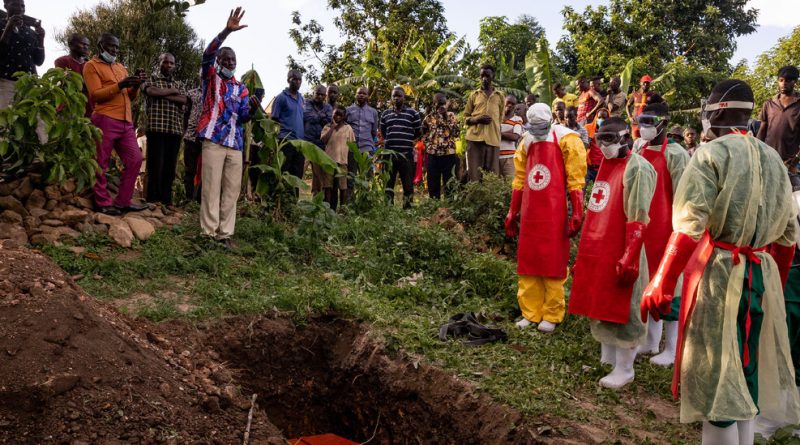Uganda’s Worst Ebola Outbreak in Two Decades Is Over, W.H.O. Declares
[ad_1]
The World Health Organization on Wednesday declared the latest Ebola epidemic in Uganda over, closing the chapter on a deadly outbreak that lasted nearly four months and killed dozens of people.
The outbreak had spread to nine districts, including the capital, Kampala, raising fears of its snowballing across the East African region. It was the worst Ebola outbreak in Uganda in more than two decades, and the second-deadliest in the country’s history, with 142 confirmed cases and 55 deaths, and an additional 22 deaths also linked to the outbreak, according to the W.H.O. Seven of those who died were health workers.
The W.H.O. considers an epidemic over when no confirmed or probable cases are reported for 42 days, twice the incubation period for Ebola infections.
The response to the outbreak was hampered by delays in identifying and tracing the first case, along with widespread misinformation among the public about the perils and even the existence of the virus.
The authorities also initially hesitated to impose a lockdown in the epicenter of the outbreak, in central Uganda, fearing that any restrictions would adversely affect the economy and estrange a population already angry about previous strict Covid shutdowns.
The outbreak was caused by the Sudan strain of the virus, which has no approved vaccine or therapeutics. Dr. Matshidiso Moeti, the W.H.O. regional director for Africa, said that the lack of treatment made it challenging to tackle the virus.
“Two months ago, it looked as if Ebola would cast a dark shadow over the country well into 2023,” Dr. Moeti said in a statement. “But this win starts off the year on a note of great hope for Africa.”
Ebola is a hemorrhagic fever that is transmitted through body contact with sick or dead people or animals. Its symptoms include fever, fatigue and headaches, followed by vomiting, diarrhea, and internal and external bleeding.
The virus kills half of those it infects. The worst outbreak recorded spread across West Africa between 2014-16, followed by one in the Democratic Republic of Congo in 2018. While there are existing Ebola vaccines — like the injectable Ervebo vaccine that was crucial to ending the outbreak in Congo — they do not protect against the Sudan strain.
Uganda has suffered multiple Ebola outbreaks in the past. The worst was in 2000, killing 224 people, according to the W.H.O.
The latest outbreak was first reported on Sept. 20, when a case was confirmed at a hospital in the Mubende district, about 90 miles west of Kampala.
The patient, a 24-year-old male, had developed symptoms including high fever, chest pain and convulsions, along with bleeding in the eyes. He had visited multiple health facilities before he was finally isolated and tested for the virus. He died on Sept. 19.
For weeks, Ugandan officials dismissed calls to issue restrictions in and beyond the epicenter of the outbreak in the central part of the country. Health experts worried about population movement and the fact that the districts where cases had been reported abutted a major highway connecting them to the capital and to the neighboring Democratic Republic of Congo.
It was not until mid-October that President Yoweri Museveni of Uganda imposed an overnight curfew, and stopped movement in and out of Mubende and Kassanda, the two districts identified as the epicenter of the outbreak.
But by then, the virus had spread nationwide, including to the capital, and to Jinja, a city on the shores of Lake Victoria. Contacts of Ebola patients were also eluding quarantine, putting more people at risk. The United States, fearing the risk of international spread, began screening air travelers who had visited Uganda.
The epidemic was deemed to be under control in late November when the last patient was discharged from hospital. In mid-December, Mr. Museveni lifted the lockdown on Mubende and Kassanda, saying that his country had succeeded in keeping the virus under control.
Dr. Jane Ruth Aceng, the Ugandan minister of health, said that communities should continue to be alert and report anyone who showed symptoms.
“Uganda is now free of active Ebola transmission,” she said. “But let’s remain vigilant.”
